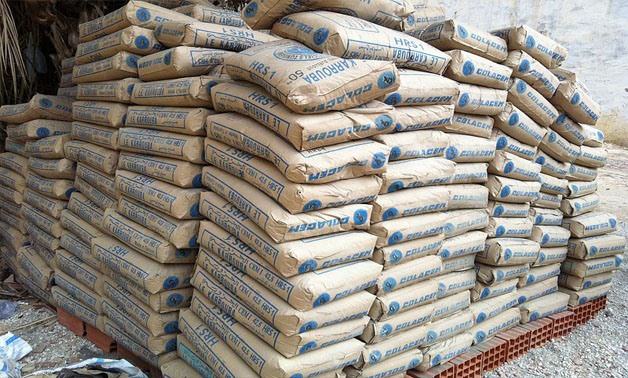
Cement - Wikimedia Commons
CAIRO – 6 March 2018: Egypt’s building materials exports continue to increase, which means that Egypt is becoming a regional hub for the construction sector, Chairman of the Export Council for Building Materials (ECBM) Waleed Gamal El-Din said Tuesday.
The value and volume of exports will further increase in light of ECBM’s efforts to open new markets and attract exporters to the field, he added.
ECBM Executive Director Hanan Ismail said the council is currently working on boosting exports to Romania, India, China and the United Arab Emirates.
This is in addition to mulling opportunities to increase exports to Mercosur countries after the trade agreement between Egypt and the Mercosur bloc, compromising Argentina, Brazil, Uruguay and Paraguay, came into force, with a focus on 10 main products that enjoy big demand in these countries.
Deputy Chairman of the ECBM Mohamed Khattab said that the council has prepared recently a study on the privileges of the trade agreement with the Mercosur bloc.
The trade deal, which covers food, cars, auto parts and industrial supplies, was signed by Egypt and Mercosur members in 2010, but it did not go into effect until last year.
The deal entails the immediate elimination of tariffs on a list of products for both sides, while a gradual reduction of customs duties will be applied to other products over the coming 10 years. After this period, products will enjoy tariff-free movement among the Mercosur countries and Egypt.
A recent study by ECBM showed that Egypt’s cement exports in 2017 increased 242 percent year-on-year to reach 2.75 million tons, iron and steel exports rose 65 percent to register 1.6 million tons and ceramics exports hiked 31 percent.
Additionally, Egypt’s marble and granite exports increased six percent, while copper crafts exports registered a 19 percent increase.
Trade Minister Tarek Kabil said last month that trade deficit shrank by 35 percent over the past two years to stand at $20 billion, down from the $53 billion in 2015.
In the first half of fiscal year 2017/18, the trade deficit declined 15.7 percent year-on-year, dropping from $21.7 billion to $18.3 billion, according to Planning Minister Hala al-Saeed.
The flotation of the Egyptian pound in November 2016 has helped Egypt curb imports and increase exports.

Comments
Leave a Comment